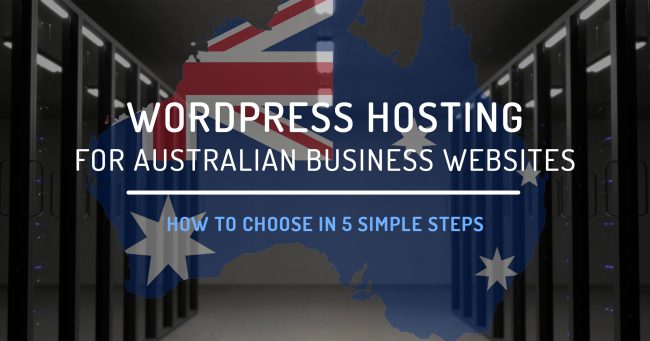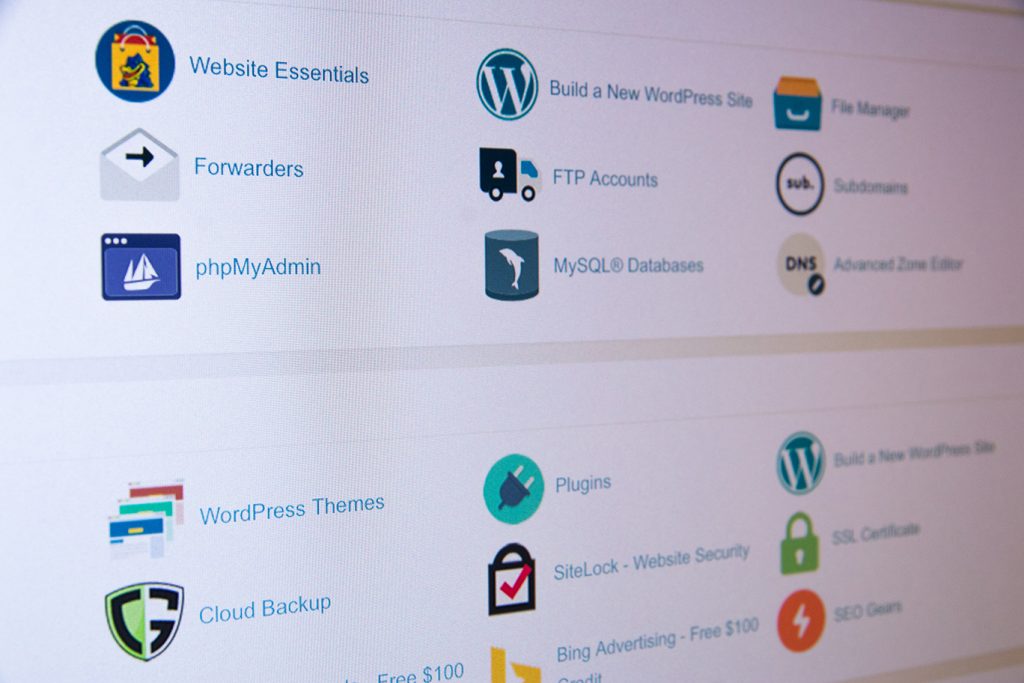As a business owner, unless your business is to sell WordPress hosting, then knowing what hosting is best for your WordPress website is not going to come without initial challenges.
You may begin by collecting a few brand names, and then checking through reviews. This usually results in a completely mixed bag of die-hard fans and fierce opposers – no matter which company you look at. It can be hard to get a true picture of what you’re getting into, before you even start to work out what plan and resources you need.
To help you in your research, we’ve compiled a checklist of 5 things below. This list will help you filter your options down and find the right WordPress hosting provider and plan for your individual needs.
Check #1: Where is the company based?
This is important for 2 main reasons when looking for WordPress hosting:
- If you are an Australian-based business, having your WordPress website hosting company in the same time-zone as you will be useful in times of need. Most companies (regardless of industry) will have less staff online at night than they do during the day. If you are with an offshore hosting provider and encounter an issue during your daytime, you may then be limited to working with only a skeleton support crew.
- For the best possible website speed, you’ll want to ensure your WordPress hosting is on a server that is physically near your target audience. If your customers are primarily Australian, it’s best to then opt for Australian hosting. This ensures your customers do not have to wait to load your website from the other side of the world.
Check #2: Do they offer 24/7 support by both email and phone?
Depending on your personal preferences, you may like to engage with technical support over email. Or perhaps you prefer phone calls? Or maybe a bit of both.
Even if you are dead-set against talking over the phone, it can be handy to know that the option is there for emergencies. We would recommend you ensure your WordPress hosting provider offers either phone or SMS contact options – just in case.
Check #3: Check their technical support response times.
Seriously – give them a spin! Sending a support ticket to a company before signing up can give you an idea on how long they take to get back to you. Just make sure you find their support team’s contact details, as opposed to their sales team’s contact details.
In many companies, salespeople make commissions on the phone calls they take, but technical support generally do not. So, you’re unlikely to find a sales team hard to reach! The rest test is always checking the support team’s response time by contacting them directly.
Check #4: Check the resources for their WordPress hosting or business hosting plans.
When looking for WordPress hosting, you’re going to need at least a little bit of grunt. WordPress can be a reasonably heavy website software, depending what you’re running on it. It’s therefore important to ensure your prospective WordPress hosting provider offers plans with plenty of juice for your website. It’s important to note that different companies have different names for WordPress hosting. Some may call it WordPress hosting, business hosting, or even personal hosting. Whatever the name, all of these hosting plans are usually still suitable for WordPress websites.
Storage Space
We would recommend finding a business hosting plan that offers at least 20GB of storage space. If you are going to have a large blog, host a tonne of photos, or sell digital downloads, you may need something larger in due time. Otherwise, 20GB is a generous amount for almost all small business WordPress websites.
Bandwidth
When it comes to bandwidth, you shouldn’t have to worry too much. We took bandwidth measurements from a random selection of approximately 50 small business websites. From this, we found that the highest monthly bandwidth usage out of all of them was 6.2GB. Most plans on the market will offer plenty more than this as standard. If you have a very high traffic website, you may be looking more around the 100-200GB bandwidth range. If this is the case for you, we’d recommend you instead check out business plans that offer unlimited bandwidth.
Power
Finally, power. There are two main measures of power when it comes to WordPress hosting; CPU speed and memory. For an average small business website, most business hosting plans will offer adequate amounts of both as standard. However, if you have a very high traffic website, you may need to look at premium business hosting plans that offer increased CPU and memory limits, something that personal hosting plans can fall short on. Each website is very uniquely different on their power needs. If you’re unsure what you need, it may be best to first talk to a specialist to determine the right plan for you.
Check #5: Check the company has adequate measures in place for uptime and reliability.
The final check you should take on your prospective WordPress hosting provider, is to ensure they have reliability and uptime covered. Make sure their website mentions specific actions they have taken to ensure the best possible reliability of their services. In addition, make sure you check what, if any, disaster recovery plan they have in place.
Remember, technology can never be completely immune to failure and you should be wary of any company who offers 100% uptime. If it is particularly critical that your website experiences as little downtime as possible, shared hosting plans may not be in your best interest. Having your own dedicated website hosting may be a better option for you in this instance.








